
Aktobe: The Heart of Western Kazakhstan
Nestled in the heart of Western Kazakhstan, Aktobe is a city that marries the charm of a growing modern hub with the quiet allure of its historical roots. As an emerging destination, Aktobe offers a unique glimpse into the life and culture of Kazakhstan, blending urban development with untouched natural beauty. Aktobe's history dates back to the 19th century, and you can see evidence of its storied past in its architecture and landmarks. The Regional Museum of Local Lore is a must-visit for history buffs, housing artifacts that tell the tale of the region's rich heritage. For a spiritual experience, the Nurgasyr Mosque stands as an architectural marvel and a testament to the city's cultural diversity. Nature lovers will find solace in the serene landscapes surrounding Aktobe. The Kargaly Reservoir offers a perfect spot for a relaxing day by the water, with opportunities for fishing, boating, and picnicking. For a more adventurous outing, the nearby Mugodzhar Hills provide excellent hiking trails with stunning panoramic views. Aktobe is also known for its vibrant food scene, where you can savor traditional Kazakh dishes like beshbarmak and kuyrdak. The local markets are brimming with fresh produce and handmade crafts, offering a taste of the region's daily life. The city's warm and welcoming residents make every visitor feel at home, ensuring an unforgettable experience.
Local tips in Aktobe
- Visit the Regional Museum of Local Lore to get a deeper understanding of Aktobe's history and culture.
- Take a day trip to the Kargaly Reservoir for fishing, boating, and picnicking.
- Explore the Mugodzhar Hills for hiking and breathtaking views of the surrounding landscape.
- Try traditional Kazakh dishes at local restaurants and food markets.
- Engage with locals to learn more about their customs and way of life.
Aktobe: The Heart of Western Kazakhstan
Nestled in the heart of Western Kazakhstan, Aktobe is a city that marries the charm of a growing modern hub with the quiet allure of its historical roots. As an emerging destination, Aktobe offers a unique glimpse into the life and culture of Kazakhstan, blending urban development with untouched natural beauty. Aktobe's history dates back to the 19th century, and you can see evidence of its storied past in its architecture and landmarks. The Regional Museum of Local Lore is a must-visit for history buffs, housing artifacts that tell the tale of the region's rich heritage. For a spiritual experience, the Nurgasyr Mosque stands as an architectural marvel and a testament to the city's cultural diversity. Nature lovers will find solace in the serene landscapes surrounding Aktobe. The Kargaly Reservoir offers a perfect spot for a relaxing day by the water, with opportunities for fishing, boating, and picnicking. For a more adventurous outing, the nearby Mugodzhar Hills provide excellent hiking trails with stunning panoramic views. Aktobe is also known for its vibrant food scene, where you can savor traditional Kazakh dishes like beshbarmak and kuyrdak. The local markets are brimming with fresh produce and handmade crafts, offering a taste of the region's daily life. The city's warm and welcoming residents make every visitor feel at home, ensuring an unforgettable experience.
When is the best time to go to Aktobe?
Iconic landmarks you can’t miss
Pushkin Park
Explore Pushkin Park in Aktobe – a vibrant amusement park perfect for family fun, adventure, and relaxation amidst beautiful landscapes.
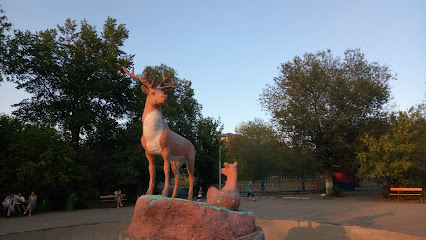
Yurta Park
Discover the thrills and joys of Yurta Park, Aktobe's premier amusement destination for unforgettable family adventures and fun-filled days.
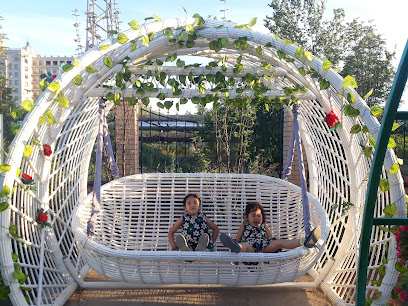
Health Park
Explore the natural beauty and cultural heart of Aktobe at Health Park, a serene escape perfect for relaxation and local experiences.
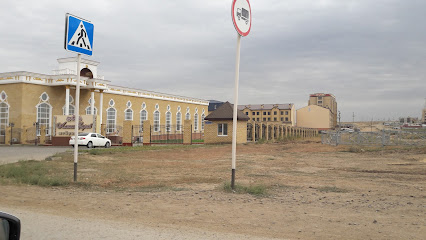
Abul Khair Khan
Explore the rich heritage of Kazakhstan at the Monument to Abul Khair Khan in Aktobe, a significant landmark and cultural treasure.
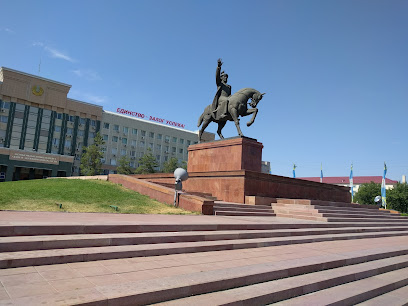
ibis Aktobe
Experience modern comfort and local charm at Ibis Aktobe, your ideal hotel in the heart of Kazakhstan's vibrant city.
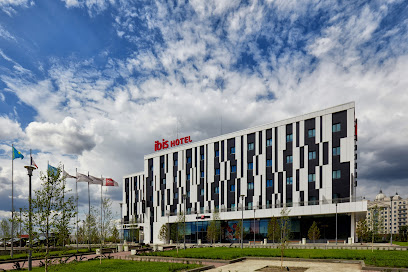
Рестобар Brooklyn
Discover the vibrant flavors and lively atmosphere of Ресторан Brooklyn, Aktobe's must-visit dining destination for food lovers.
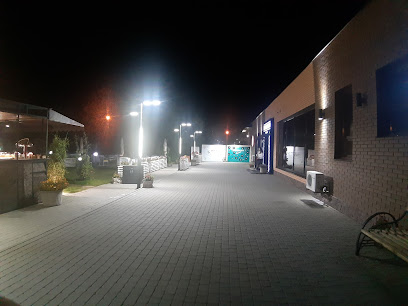
Aktobe City
Experience the modern charm and rich cultural heritage of Aktobe City, a vibrant destination in Kazakhstan offering comfort, adventure, and local hospitality.

Halva Resort
Explore the breathtaking hiking trails and rich biodiversity at Halva Resort in Aktobe, a perfect getaway for nature lovers and adventure seekers.
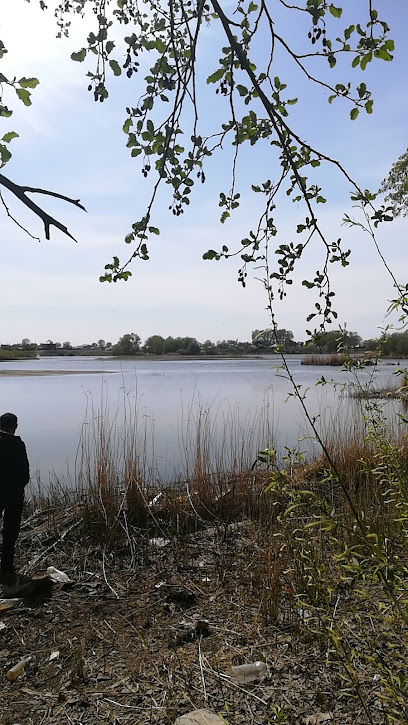
Banya Sazda spa
Experience the perfect blend of traditional and modern wellness at Banya Sazda Spa in Aktobe, where relaxation meets rejuvenation.
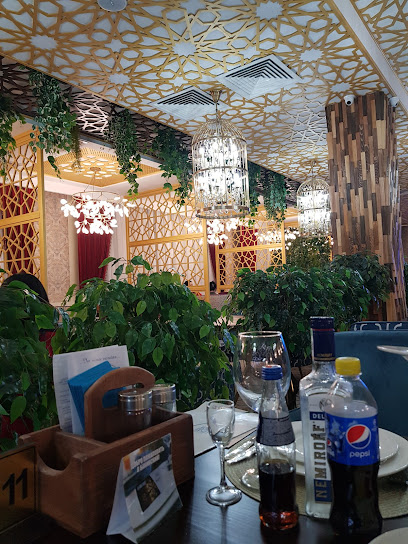
Ақтөбе облыстық «Руханият» музейі
Explore the captivating history and vibrant culture of Aktobe at the Rukhaniyat Museum, where every artifact tells a unique story.
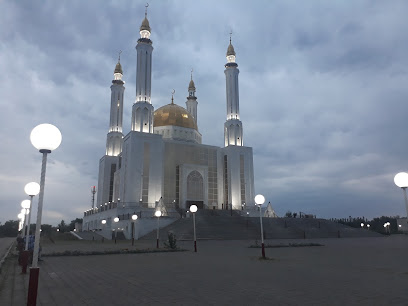
Park Im. Pervogo Prezidenta
Experience the lush landscapes and vibrant culture of Aktobe at Park Im. Pervogo Prezidenta, a serene escape for tourists and locals alike.
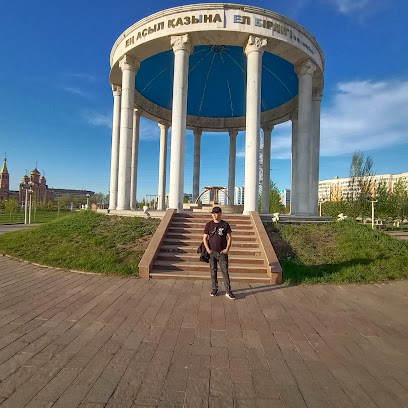
Ақтөбе облыстық планетарийі
Unveil the mysteries of the universe at Aktobe Planetarium, a captivating destination for stargazers and science lovers in Kazakhstan.
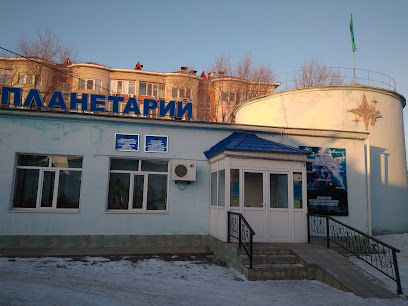
Cyber ACTION AKTOBE
Discover the vibrant gaming culture at Cyber ACTION AKTOBE, a premier computer club in Aktobe, where technology meets entertainment.
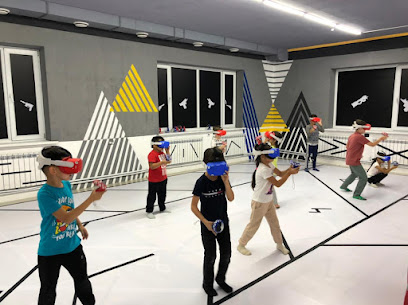
Обелиск Славы (Актобе)
Discover the Obelisk of Glory in Aktobe, a majestic monument celebrating courage and resilience, set amidst vibrant gardens and rich local culture.
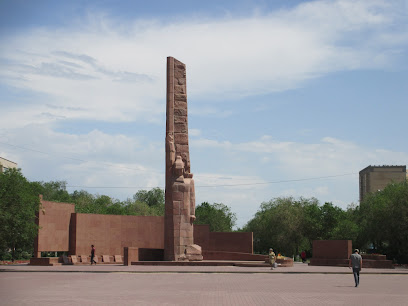
Aiteke Bi Monument - Әйтеке Би Ескерткіші
Explore the Aiteke Bi Monument in Aktobe, a stunning tribute to Kazakh heritage and a symbol of unity and history.
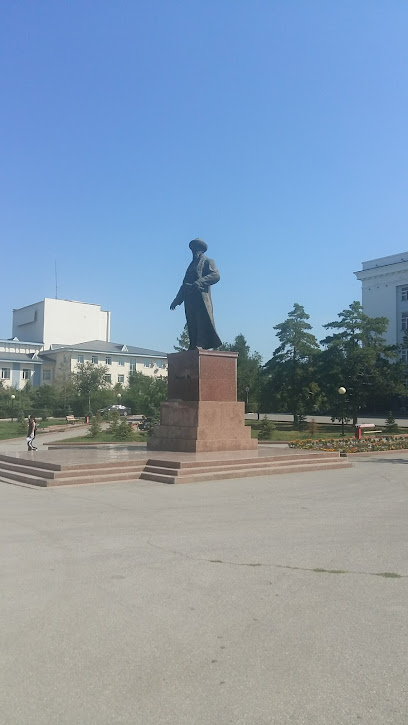
Unmissable attractions to see
Pushkin Park
Experience the charm of Pushkin Park in Aktobe, a delightful blend of amusement and nature perfect for relaxation and family fun.
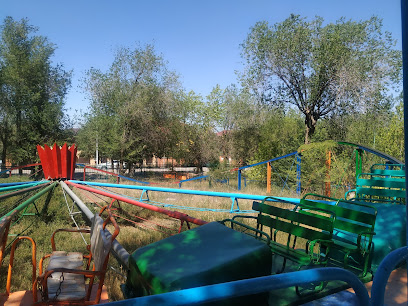
Yurta Park
Discover the excitement of Yurta Park in Aktobe, where thrilling rides and family fun come together for an unforgettable day out.
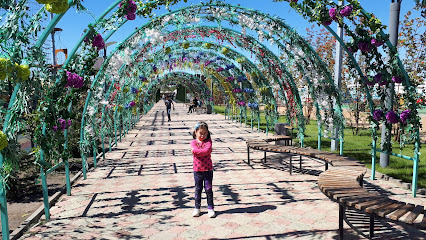
Health Park
Experience the tranquility and beauty of Health Park in Aktobe, a perfect escape for nature lovers and outdoor enthusiasts.
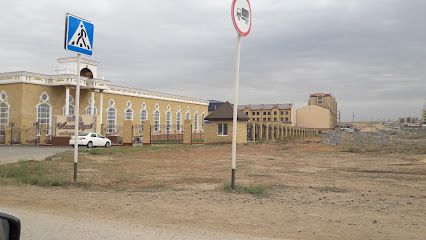
Abul Khair Khan
Explore the Abul Khair Khan Monument in Aktobe, a stunning tribute to Kazakh heritage surrounded by beautiful landscapes and vibrant local culture.
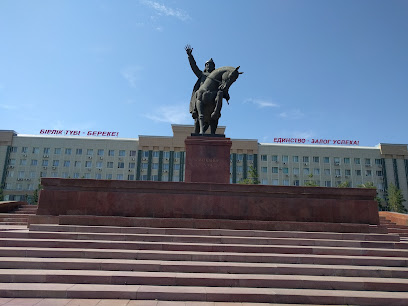
Halva Resort
Experience the breathtaking landscapes and outdoor adventures at Halva Resort, a premier hiking destination in Aktobe, Kazakhstan.
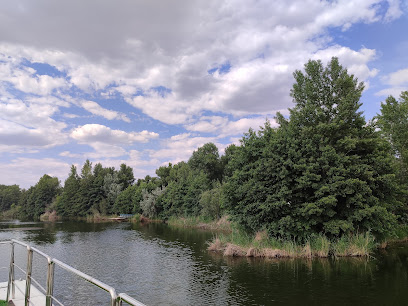
Aktyubinskiy Oblastnoy Istoriko-Krayevedcheskiy Muzey
Explore the Aktyubinskiy Oblastnoy Istoriko-Krayevedcheskiy Muzey in Aktobe for a deep dive into Kazakhstan's rich history and cultural heritage.
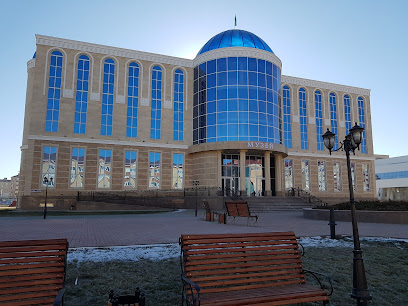
Ақтөбе облыстық «Руханият» музейі
Explore the Rukhaniyat Museum in Aktobe for a deep dive into Kazakhstan's rich cultural heritage and history.
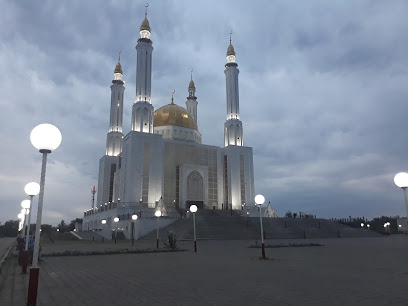
Ақтөбе облыстық планетарийі
Discover the cosmos at the Aktobe Planetarium, a captivating destination for stargazers and families, showcasing the wonders of the universe.
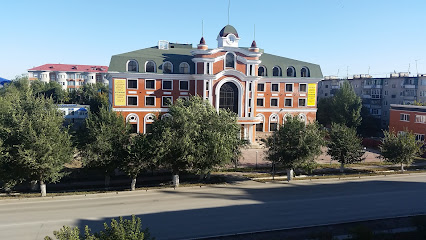
Kachelya Obyknovennaya, Zatoplennaya
Explore the serene beauty and cultural richness of Kachelya Obyknovennaya, Zatoplennaya, a hidden gem in Aktobe, Kazakhstan, perfect for tourists seeking tranquility.
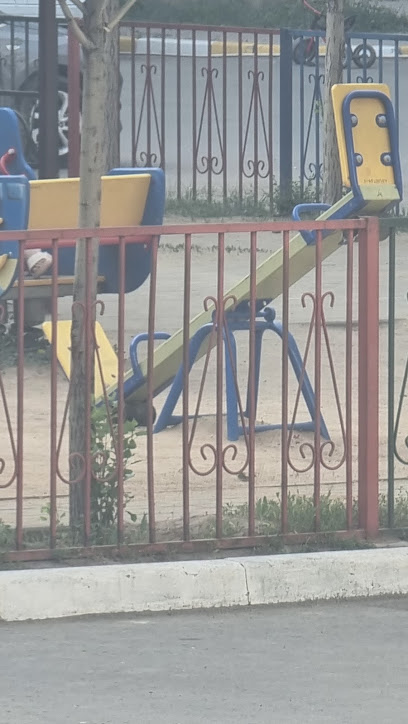
Visit Aktobe
Explore Aktobe, Kazakhstan: A perfect blend of breathtaking hiking trails and rich cultural experiences awaits every traveler.
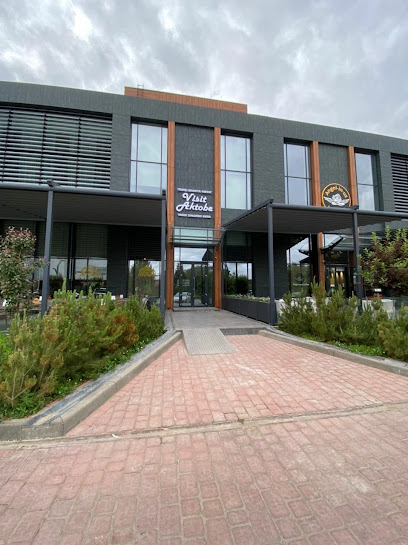
Essential places to dine
Kafe Ochag
Discover the flavors of Aktobe at Kafe Ochag – where delicious cuisine meets warm hospitality in a vibrant setting.
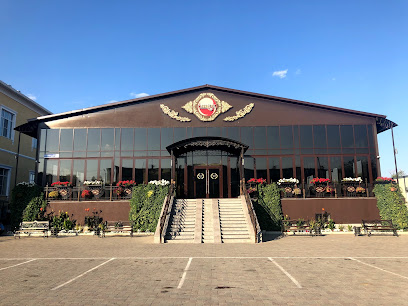
Chechil Актобе
Discover the vibrant ambiance at Chechil Актобе – where delicious food meets lively entertainment in Aktobe.
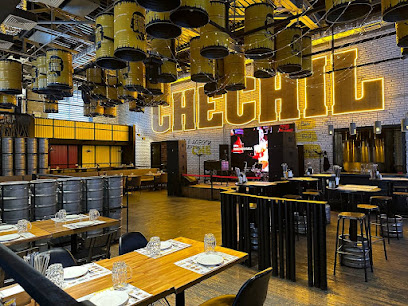
Taksim
Experience the vibrant flavors of Aktobe at Taksim – where traditional meets contemporary in an unforgettable dining experience.
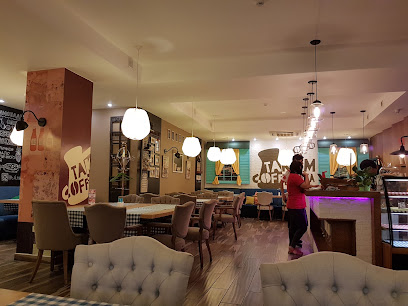
Cafe Afsona
Experience authentic Uzbek cuisine at Cafe Afsona in Aktobe - where every dish tells a story.
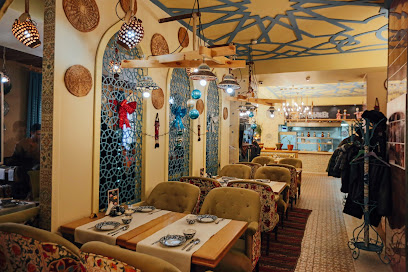
BARAKAT столовая
Experience authentic Kazakh cuisine at BARAKAT столовая, Aktobe's vibrant self-service restaurant offering delicious traditional dishes.
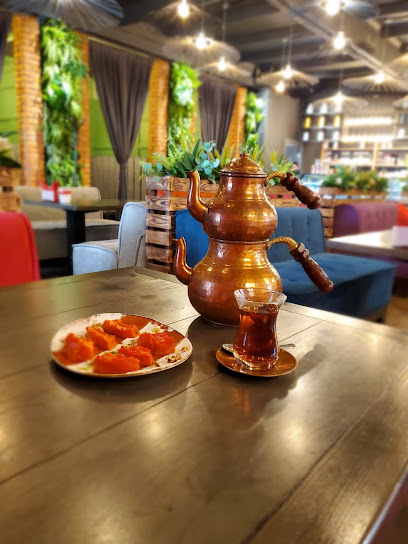
Жастык
Experience authentic Kazakh cuisine at Жастык in Aktobe - where tradition meets flavor in a welcoming atmosphere.
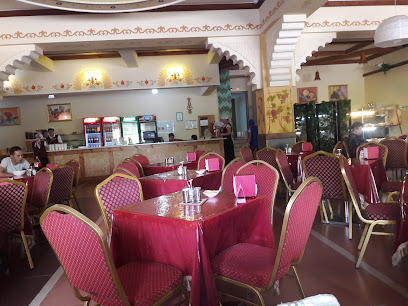
Taykazan
Experience authentic Kazakh cuisine at Taykazan in Aktobe - where tradition meets modern taste in a cozy atmosphere.
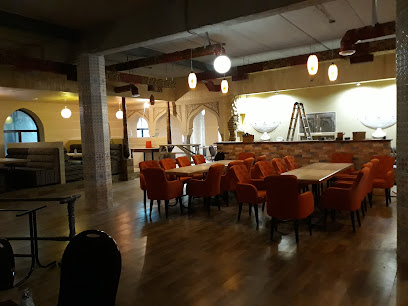
Vanil'
Discover heavenly desserts at Vanil', Aktobe's top dessert destination offering exquisite cakes and delightful pastries.
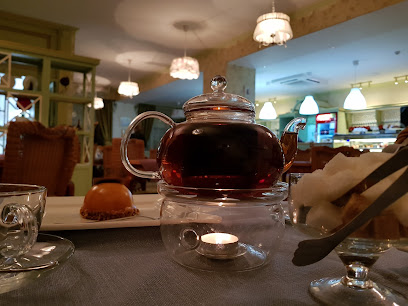
Cherrini
Discover Cherrini in Aktobe - where traditional Kazakh flavors meet modern culinary excellence in a welcoming atmosphere.
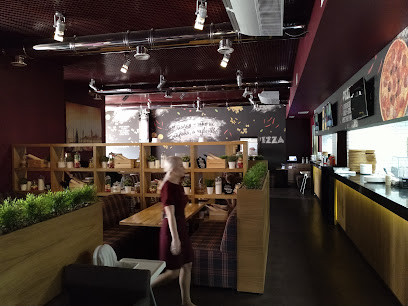
CENTRE Lounge bar & Terrace
Explore Aktobe's dynamic dining scene at CENTRE Lounge Bar & Terrace - where flavors meet fun in a stunning setting.
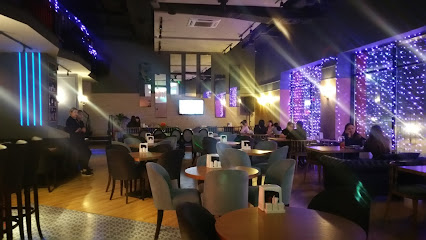
REVOLVER GRUB&PUB
Discover the lively atmosphere and diverse menu at Revolver Grub & Pub in Aktobe – where delicious food meets great company.
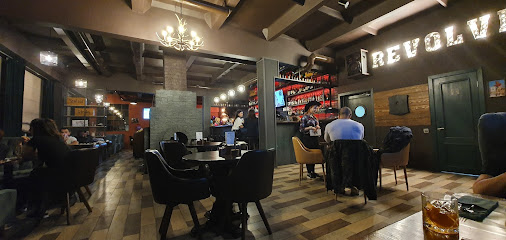
Al'yans
Discover Al'yans in Aktobe – where authentic Kazakh cuisine meets modern dining in a charming atmosphere.
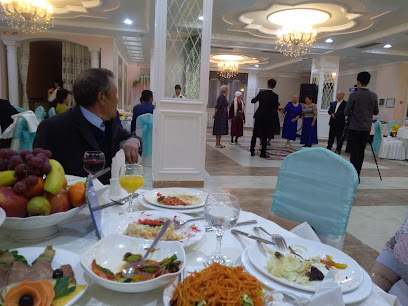
Zheruyyk
Experience authentic Kazakh flavors at Zheruyyk, a top-rated restaurant in Aktobe offering delicious local cuisine in a welcoming atmosphere.
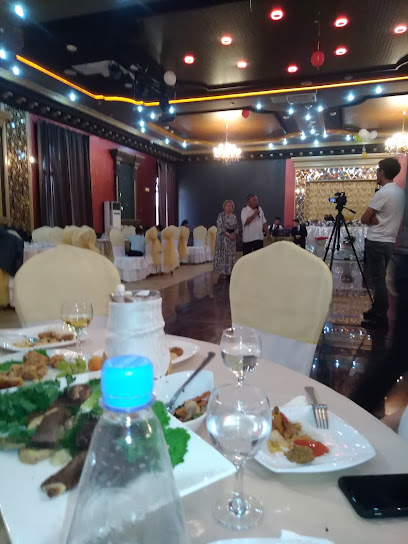
Ulytau
Experience exceptional dining at Ulytau in Aktobe, where local flavors meet international cuisine in an elegant setting.
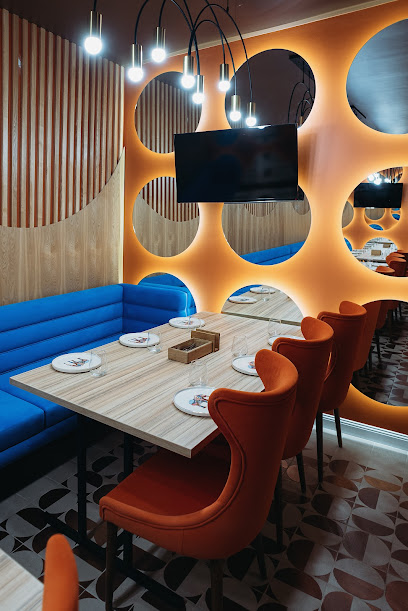
Restaurant Altyn Orda
Experience authentic Kazakh cuisine at Restaurant Altyn Orda in Aktobe - where tradition meets taste in every bite.
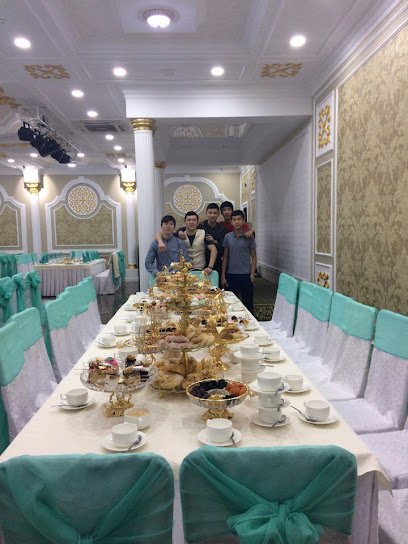
Markets, malls and hidden boutiques
Dina Hypermarket
Discover the essence of Aktobe shopping at Dina Hypermarket, where local flavors meet international variety.
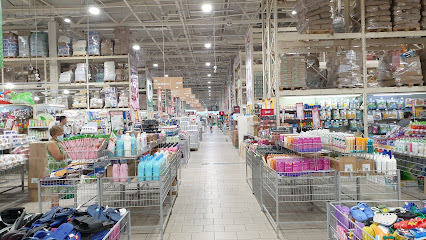
Altay
Discover the essence of local culture and shopping at Altay Shopping Mall in Aktobe, where vibrant markets meet modern retail experiences.
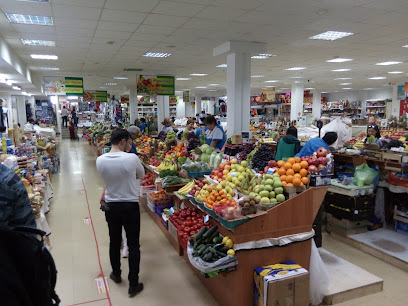
Aina
Explore Aina in Aktobe, a shopping mall rich in variety, local culture, and modern amenities for an unforgettable retail experience.
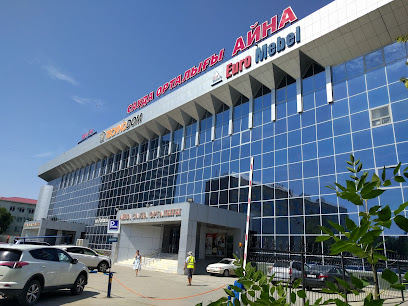
Нурдаулет
Explore Нурдаулет, Aktobe's premier shopping destination offering a blend of retail, dining, and entertainment for an unforgettable experience.
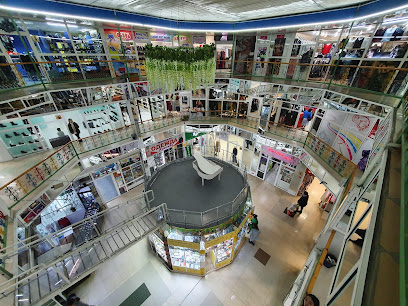
Koton
Discover stylish fashion at Koton in Aktobe - where trendy clothing meets affordability.
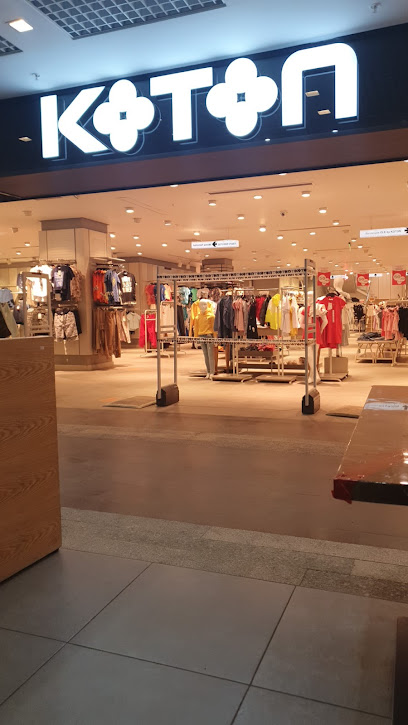
Bambini
Discover a magical toy store in Aktobe, Bambini, where every child’s dream comes alive with a vast selection of toys that inspire creativity.
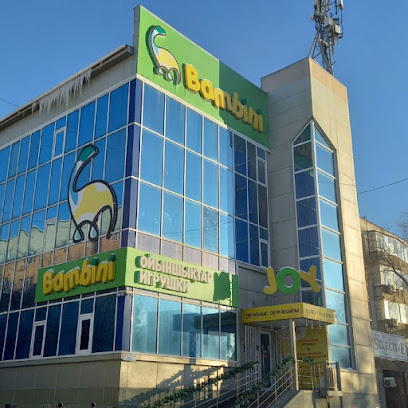
ТЦ MEGA ПЛАНЕТА
Explore the vibrant shopping, dining, and entertainment experience at ТЦ MEGA ПЛАНЕТА in Aktobe, Kazakhstan, where fashion and fun collide.
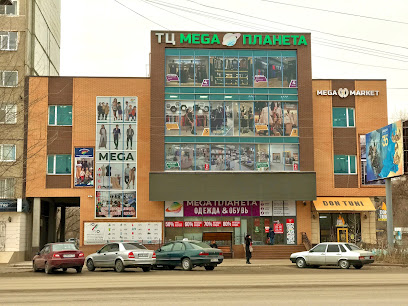
Nauryz Shopping Mall
Discover Nauryz Shopping Mall: Aktobe's premier destination for shopping, dining, and entertainment, blending local culture with modern flair.
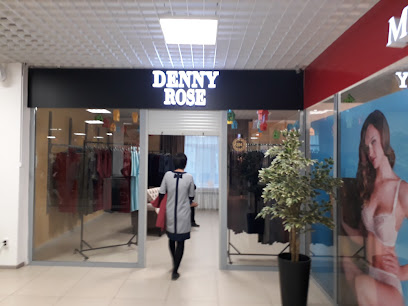
MARWIN
Explore MARWIN, Aktobe's enchanting toy store offering a delightful array of toys, games, and art supplies for a joyful shopping experience.
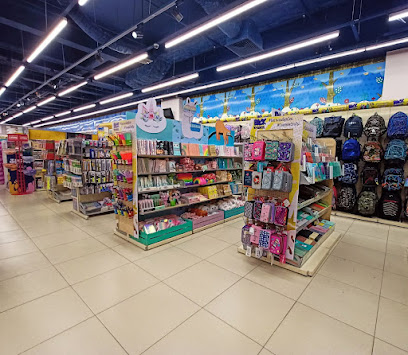
Alkomarket Glavpivtorg
Explore Alkomarket Glavpivtorg in Aktobe for a unique shopping experience filled with local flavor and culture.
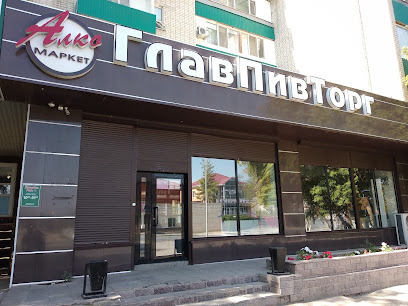
INTERTOP
Discover stylish footwear and fashion accessories at INTERTOP, Aktobe's premier destination for fashion enthusiasts seeking quality and variety.
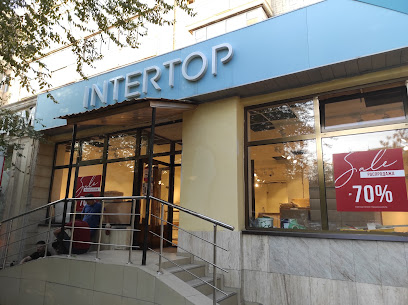
Modnyashki
Explore Modnyashki in Aktobe for trendy and stylish children's clothing, perfect for every little fashionista.
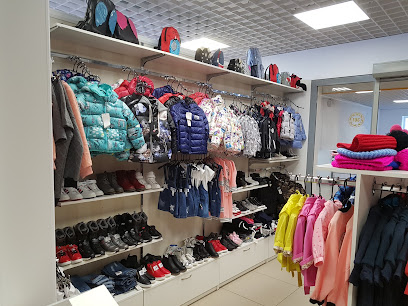
Flip.kz
Discover Flip.kz in Aktobe, a diverse e-commerce service offering books, outdoor gear, and unique local products that capture the essence of Kazakhstan.
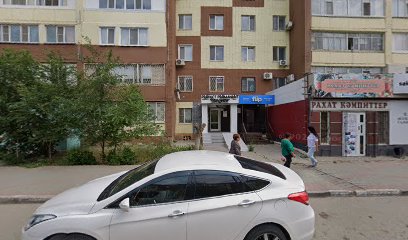
Super Arzan 8Th Microdistrict
Discover the latest trends in clothing and footwear at Super Arzan 8Th Microdistrict, Aktobe's premier shopping destination for fashion enthusiasts.
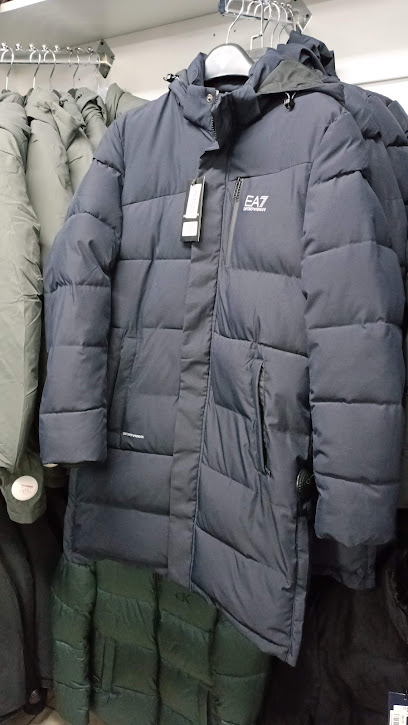
Td Astana 0Etazh 15Butik
Explore the vibrant Td Astana Shopping Mall in Aktobe, a must-visit destination for shopping and local culture enthusiasts.
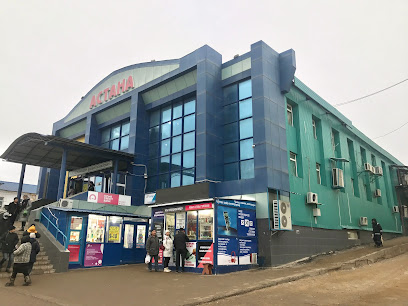
Essential bars & hidden hideouts
Chechil Актобе
Discover the vibrant culinary scene at Chechil Актобе, a gastropub in Aktobe offering delicious food, refreshing drinks, and live music.
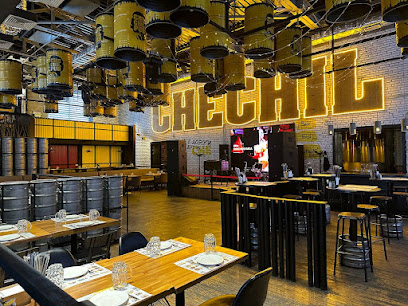
ALEFUN
Experience the vibrant culinary scene at ALEFUN in Aktobe, where great food meets a lively atmosphere for unforgettable dining.
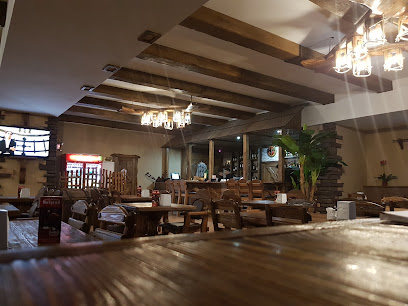
CENTRE Lounge bar & Terrace
Discover the lively ambiance and diverse menu at CENTRE Lounge Bar & Terrace, the perfect spot for relaxation and entertainment in Aktobe.
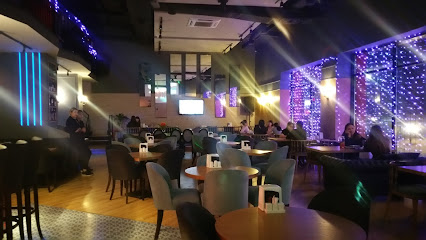
REVOLVER GRUB&PUB
Discover the perfect blend of vibrant atmosphere and delicious cuisine at Revolver Grub & Pub in Aktobe.
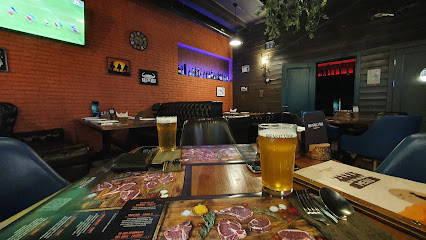
RestoBar & Karaoke Душа
Discover the ultimate karaoke experience at RestoBar & Karaoke Душа in Kazakhstan, where fun, food, and music unite for unforgettable nights.
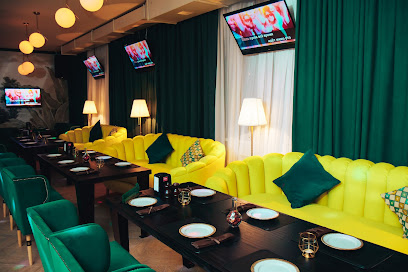
W&B Кальянная
Discover the vibrant atmosphere and exquisite hookah selections at W&B Кальянная, a premier bar in Aktobe ideal for unforgettable nights.
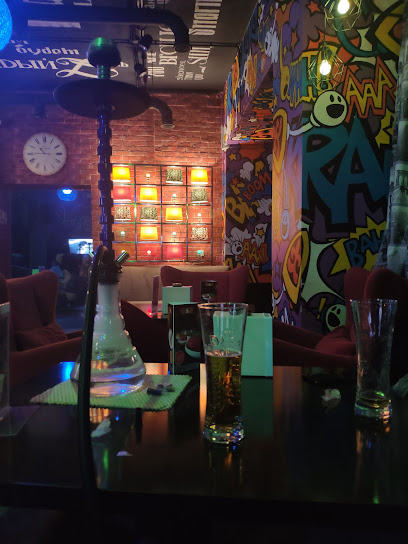
Pivovarovka Bil'yard
Experience the vibrant nightlife at Pivovarovka Bil'yard in Aktobe, where crafted cocktails and a lively atmosphere await every visitor.
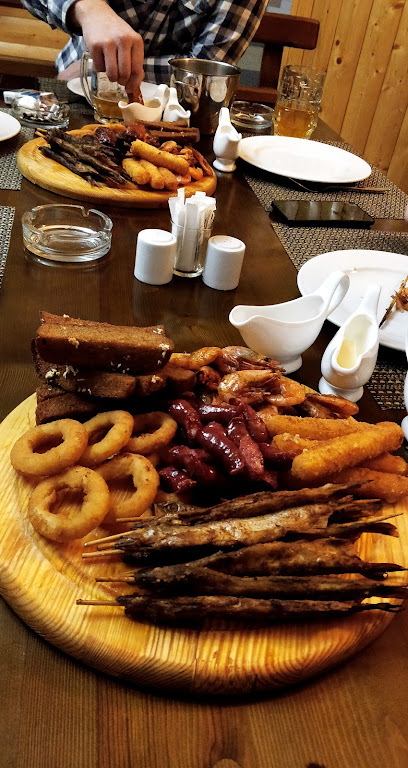
Lumberjack pub
The Lumberjack Pub in Aktobe: A vibrant spot for delicious food, refreshing drinks, and unforgettable experiences in a traditional pub setting.
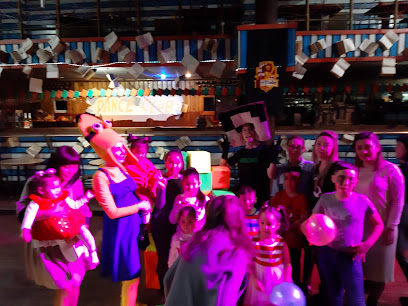
713 Bar&Grill
Experience the vibrant nightlife at 713 Bar&Grill in Aktobe, where great food and lively atmosphere await you every night.
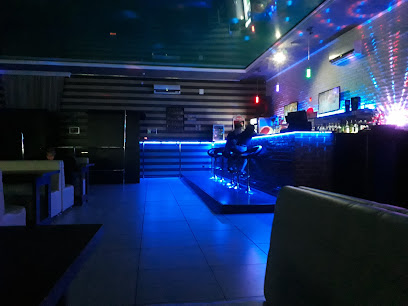
ASTRAL GRILL & BAR
Discover the vibrant flavors of Aktobe at Astral Grill & Bar, where culinary delight meets lively atmosphere for an unforgettable dining experience.
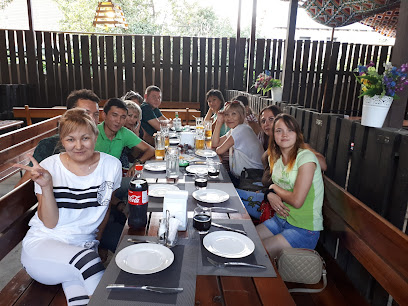
PABLO BAR&RESTAURANT
Experience the vibrant atmosphere and exquisite dining at Pablo Bar & Restaurant in Aktobe, where every meal is a celebration.
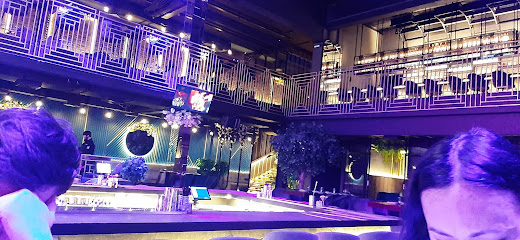
Foxus bar
Discover the lively atmosphere and diverse drink selection at Foxus Bar, Aktobe's ultimate nightlife destination for tourists and locals alike.
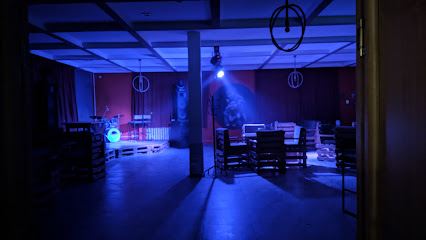
BOMBARDIER Sport Bar
Enjoy a lively atmosphere and delicious drinks at BOMBARDIER Sport Bar in Aktobe, where locals and tourists gather for unforgettable experiences.
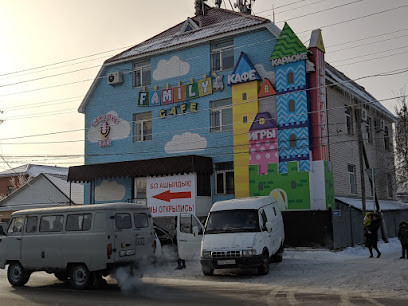
Prime sport-bar
Prime Sport-Bar in Aktobe offers a lively atmosphere with delicious food and drinks, perfect for sports lovers and casual diners alike.
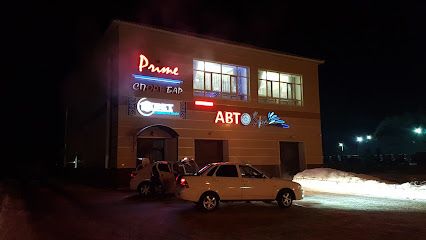
Local Phrases
-
- HelloСәлем
[Salem] - GoodbyeҚош келдіңіз
[Qosh keldiniz] - YesИя
[Iya] - NoЖоқ
[Zhoq] - Please/You're welcomeРахмет
[Rahmet] - Thank youРахмет
[Rahmet] - Excuse me/SorryКешіріңіз
[Keshiriniz] - How are you?Қалайсыз ба?
[Qalaisyz ba?] - Fine. And you?Жақсым. Сіз күйініз?
[Zhaksym. Siz kuiniz?] - Do you speak English?Сіз ағылшынша сөйлейсіз бе?
[Siz agylshynsha söyleisiz be?] - I don't understandМен түсінбеймін
[Men tusinbeymin]
- HelloСәлем
-
- I'd like to see the menu, pleaseМенюді көрсем келеді ма?
[Menyudi körsem keledi ma?] - I don't eat meatМен говядина тағамаймын
[Men govyadina tagamaymin] - Cheers!Арман
[Arman] - I would like to pay, pleaseТөлеуге болады ма?
[Töleuge bolady ma?]
- I'd like to see the menu, pleaseМенюді көрсем келеді ма?
-
- Help!Көмек!
[Komek!] - Go away!Ауыз арыл!
[Auyz arıl!] - Call the Police!Полицияға қоңырау шалыңыз!
[Politsiyaga qońırau shalınız!] - Call a doctor!Докторға қоңырау шалыңыз!
[Doktorga qońırau shalınız!] - I'm lostМен алдыма түсімін
[Men aldıma tusimin] - I'm illМен аурулымын
[Men aurulımın]
- Help!Көмек!
-
- I'd like to buy...Сатып алу керек...
[Satyp alu kerek...] - I'm just lookingТек көріп тұрмын
[Tek körip turmın] - How much is it?Қаншаға?
[Qanshaga?] - That's too expensiveОл тым дорын
[Ol tım dorın] - Can you lower the price?Бағаны төмендетуге болады ма?
[Bagany tömendetuge bolady ma?]
- I'd like to buy...Сатып алу керек...
-
- What time is it?Қанша уақыт?
[Qansha uaqıt?] - It's one o'clockБір уақыт
[Bir uaqıt] - Half past (10)Он жарым
[On jarym] - MorningТаң
[Tan] - AfternoonКеш
[Kesh] - EveningКешкі
[Keshki] - YesterdayКеше
[Keshe] - TodayБүгін
[Bugın] - TomorrowЕртең
[Erteń] - 1Бір
[Bir] - 2Екі
[Eki] - 3Үш
[Üsh] - 4Төрт
[Tört] - 5Бес
[Bes] - 6Алты
[Altı] - 7Жеті
[Jeti] - 8Сегіз
[Segiz] - 9Тоғыз
[Toğız] - 10Он
[On]
- What time is it?Қанша уақыт?
-
- Where's a/the...?...қайда?
[...Qayda?] - What's the address?Мекен-жай кайда?
[Meken-zhay qayda?] - Can you show me (on the map)?Маған (картада) көрсете аласыз бе?
[Mağan (kartada) körsete alasız be?] - When's the next (bus)?Келесі (автобус) канша уақытта?
[Kelesi (avtobus) qansha uaqıtta?] - A ticket (to ....)Билет (....ға)
[Bilet (....ga)]
- Where's a/the...?...қайда?
History of Aktobe
-
Aktobe, originally founded as Aktyubinsk, was established in 1869 as a Russian military fort. Its strategic location on the Ilek River made it an important defense point against potential incursions from nomadic tribes. The name 'Aktobe' translates to 'white hill,' referring to the chalky hills in the area.
-
In the late 19th and early 20th centuries, Aktobe saw significant expansion and development under Russian rule. The construction of the Trans-Aral Railway in 1901 connected Aktobe to other major cities in the Russian Empire, boosting its economic and demographic growth. This period also saw an influx of settlers, including Russians, Ukrainians, and Tatars, who contributed to the city's diverse cultural tapestry.
-
During the Soviet era, Aktobe underwent rapid industrialization. It became a hub for various industries, including metallurgy, chemicals, and machinery. The establishment of large factories and plants transformed the city's landscape and provided employment to thousands. The population of the city grew significantly as people from different parts of the Soviet Union moved here for work.
-
World War II had a profound impact on Aktobe. Many of its residents were drafted into the Soviet Army, and the city also hosted several evacuated factories from the western parts of the USSR. These factories were crucial in supplying the Soviet war effort. Additionally, Aktobe served as a refuge for those displaced by the war, further diversifying its population.
-
After the dissolution of the Soviet Union in 1991, Aktobe became part of the newly independent Republic of Kazakhstan. The transition to a market economy was challenging, but the city managed to adapt and grow. Investments in the oil and gas industry brought new prosperity to the region. Aktobe's population continued to grow, and modern infrastructure developments changed the city's skyline.
-
Aktobe is a city where traditional Kazakh culture coexists with modern influences. The city is home to several cultural institutions, including theaters, museums, and galleries. Landmarks such as the Nurgasyr Mosque and the Aliya Moldagulova Museum highlight the city's rich historical and cultural heritage. Festivals, music, and cuisine in Aktobe reflect the blend of Kazakh traditions and the diverse influences from its historical inhabitants.
Aktobe Essentials
-
Aktobe is accessible via the Aktobe International Airport (AKX), which has direct flights from major cities in Kazakhstan and some international destinations. For those traveling by train, Aktobe is a significant stop on the Trans-Siberian Railway, connecting it to other key cities in Kazakhstan and Russia. Buses and shared taxis also operate between Aktobe and neighboring cities, providing additional travel options.
-
Within Aktobe, public transportation includes buses, minibuses (marshrutkas), and taxis. Buses and marshrutkas are the most economical options and cover most parts of the city. Taxis are readily available and relatively inexpensive, but it's advisable to negotiate the fare beforehand or ensure the meter is used. Car rental services are also available for those who prefer self-driving.
-
The official currency in Kazakhstan is the Kazakhstani Tenge (KZT). Credit and debit cards are widely accepted in hotels, restaurants, and larger stores. However, it is recommended to carry some cash for smaller establishments and markets. ATMs are plentiful in Aktobe, and currency exchange services are available at banks and exchange offices.
-
Aktobe is generally a safe city, but travelers should exercise common sense and standard precautions. Avoid walking alone at night in poorly lit areas and be cautious of your belongings in crowded places. Some neighborhoods, such as the outskirts and industrial areas, have higher crime rates, so it's advisable to stay within the central and well-traveled districts.
-
In case of emergencies, dial 112 for immediate assistance. The city has several hospitals and clinics for medical emergencies. It is advisable to have travel insurance that covers medical expenses. For minor health issues, numerous pharmacies are available where you can buy over-the-counter medications.
-
Fashion: Do dress modestly, especially when visiting religious or cultural sites. Avoid wearing overly revealing clothing. Religion: Do respect local customs and traditions. When visiting mosques, cover your head and remove your shoes. Public Transport: Do be respectful and offer your seat to elderly passengers. Don't eat or drink on public transport. Greetings: Do greet people with a handshake and a smile. A nod of the head is also seen as respectful. Eating & Drinking: Do try local Kazakh cuisine and accept food offerings graciously. Don't refuse hospitality, as it is considered impolite.
-
To experience Aktobe like a local, visit the Central Bazaar where you can buy fresh produce and traditional Kazakh goods. Engage with locals, as they are often friendly and willing to share stories about the city's history and culture. Don't miss the regional museums and cultural centers to get a deeper understanding of Aktobe's heritage. For a unique experience, take a stroll along the banks of the Ilek River, especially during sunset.
Trending Landmark in Aktobe
Nearby Cities to Aktobe
-
Things To Do in Uralsk
-
Things To Do in Atyrau
-
Things To Do in Kostanay
-
Things To Do in Zhezkazgan
-
Things To Do in Aktau
-
Things To Do in Nur-Sultan
-
Things To Do in Urgench
-
Things To Do in Khiva
-
Things To Do in Turkestan
-
Things To Do in Khachmaz
-
Things To Do in Quba
-
Things To Do in Sumqayit
-
Things To Do in Baku
-
Things To Do in Gabala
-
Things To Do in Shamakhi




